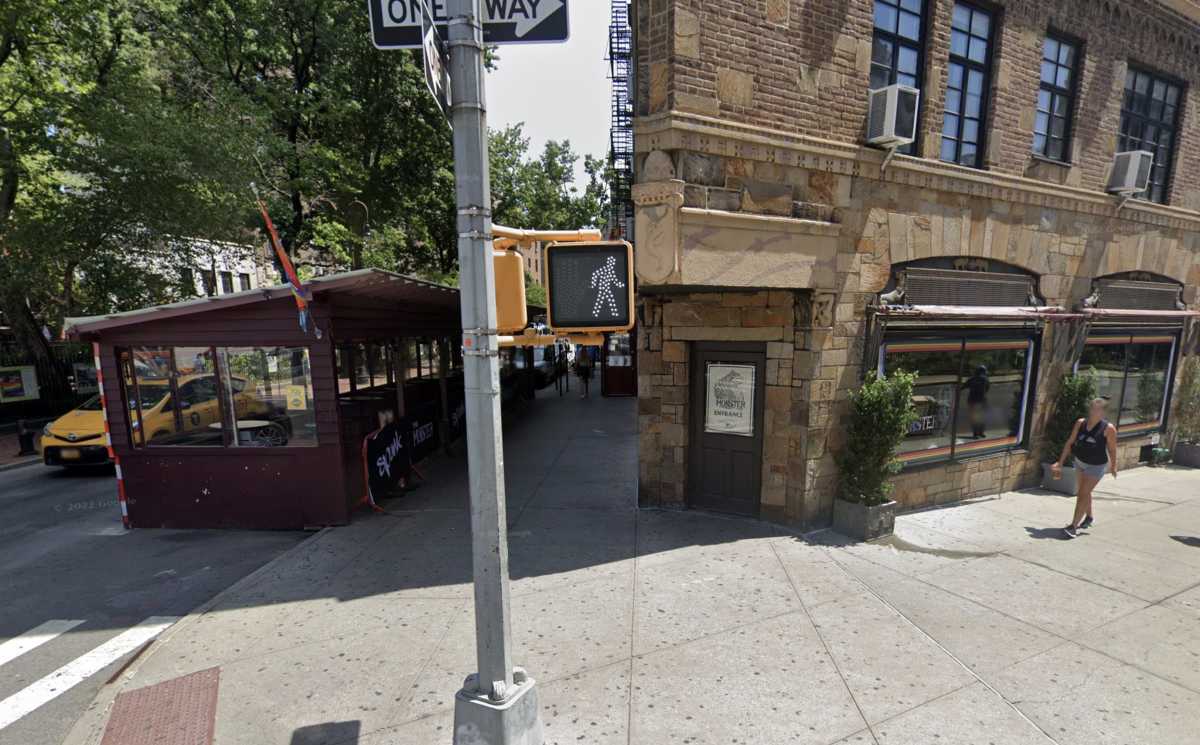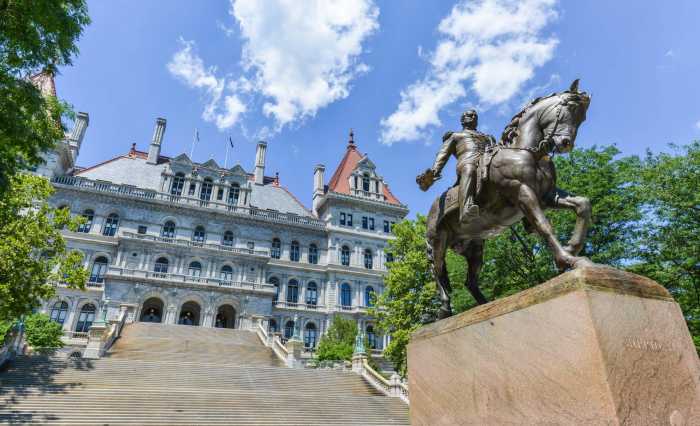Sees glass as half full at C.B. 2
To The Editor
Re “B.P.’s to blame for board conflicts” (letter, by Mary K. Doris, July 21):
Despite having some of the most popular tourist neighborhoods and many chronic quality of life issues, Community Board 2 has managed to create a more sensible coexistence with the nightlife industry than any other area with a similar level of nightlife density. Most liquor license holders in our neighborhoods are particularly open to communication and cooperation, and this attitude is fostered by the efforts of Community Board 2.
The job of a community board is not to reject or support an application arbitrarily, but to examine each on its individual merits. Recommendations that are not based on the merits are routinely ignored by the S.L.A.
I am impressed by the diversity and talent of the borough president’s appointments to C.B. 2. Our board works on land-use, social and legal issues and subsequently attracts as members planners, architects, social workers, parents, teachers and lawyers who have relevant skills.
On-premise liquor license holders make up a very small minority of C.B. 2 members and I have never seen a situation where they have gone out of their way to help bad places. To the contrary, my experience as a public member on C.B. 2 has shown that the nightlife operators that are board members are as tough or tougher on people seeking liquor licenses than their colleagues who are residents. Merchant members see it as their duty to keep disruptive operators from obtaining licenses and further tarnishing the reputation of their industry. Their intimate knowledge of the industry makes them more aware of the issues that can cause problems for residents and other merchants.
Community Board 2 has imposed stipulations on most of the liquor licenses it has supported and has successfully sued the S.L.A. to revoke a license when stipulations were not honored.
Criticism of the community board membership and this borough president for her appointments shows a lack of understanding of how community boards work and overlooks the fact that councilmembers recommend half of the borough president’s appointments. This criticism would more appropriately be directed at the S.L.A., which actually approves and issues liquor licenses.
Lois Rakoff
Historical view on sneakers
To The Editor:
Re “Air Jordans in the air and throwing up Red Bull” (news article, July 28):
When I grew up in Brooklyn, in the 1940s and ’50s, we weren’t allowed to wear sneakers all day. It was supposed to be bad for your feet. So if you had gym class that day you had to tie the sneakers together and hang them around your neck. That’s how you got them to and from school.
The problem was, when the school bully spotted you, he took the sneakers off your neck and threw them up over the nearest wire. Your mother then yelled at you that night.
One could always tell when one was approaching a school based on the increasing number of sneakers on wires.
Arthur Delmhorst
Boys to men, or men to boys?
To The Editor:
I’ve always enjoyed reading The Villager, and now I subscribe to it.
Your reporting is good, accurate and pertinent to our community.
I was dismayed, however, at your characterization recently of an alleged stabber and his victim (“6th Precinct C.O. plans new initiative on quality of life,” news article, July 28).
You refer to the alleged stabber as “19-year-old man;” you refer to the victim as “another 19-year-old man.”
Might I suggest that you refer to such persons more accurately. They are not men, for gosh sakes. They’re simply teenage boys, and should be so described.
John Mascola
Chelsea needs affordable housing
To The Editor:
I want to hear from the Department of City Planning and its commissioner, Amanda Burden, on housing proposed by Mayor Bloomberg and others, featuring the demolition of one kind of housing and replacing it with another, more expensive kind. What troubles me is that low-cost housing used of necessity by newcomers to the city and by the disabled, of whom I am one, is to be replaced by more expensive housing.
Please tell me how I, as a disabled person, can live in this city if it will be rebuilt as proposed by our mayor. I would expect a response within this month.
John Stockman, Jr.
A toast to old McGurk’s saloon
To The Editor:
Re 295 Bowery and the Cooper Sq. Urban Renewal Plan:
Urban renewal is nothing but displacing one group of people with another — whether it’s destroying an established community so it can be replaced by people with lower incomes or with higher incomes.
An example of the horrors of urban renewal is my hometown, Oceanport, N.J. In the late 1960s, the municipal government voted to level the oldest part of the town, dating to the 1840s. In its place stands a housing project for people who never even lived in the town.
While riding in a car going along the Bowery last week, I was shocked to see 295 Bowery, otherwise known as “McGurk’s Suicide Hall,” still standing!
For months I had avoided walking by No. 295, being afraid the building might be in a phase of demolition or gone altogether.
In the July 26, 2000, issue of The Villager, Kate Millett and Sophie Keir as well as myself wrote letters to the editor, entitled “McGurk’s won’t go easily” and “Save Bowery’s last saloon,” respectively.
The fact that this building, important for many reasons, including that it is the site of the last historic saloon on the Bowery, still stands years later is a testimony to the caring East Side community.
John Heliker
Heliker is a former member, Save Poe, Save Judson House Coalition
For More: https://www.amny.com/news/memories-of-carmine-de-sapio-last-boss-of-tammany/






































